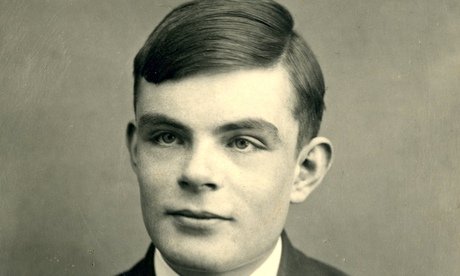
Turing Test Has Been Passed After 64 Years?
Are computers as intelligent as humans?
Article Header
« Return to Main PageTuring Test Has Been Passed After 64 Years?
Are computers as intelligent as humans?
Since 1950, when the famous mathmetician and computer scientist Alan Turing proposed a test of computer intelligence named the Turing Test, one of the most intreguing questions about the future of computers has been "Will a computer become as intelligent as a human?". According to some sources like the Washington Post, Foxnews , the famous Turing Test was passed by a computer this past Saturday.
Turing's original question was "Can machines think?" The challenge with this question is coming up with a clear & measureable definition of what it means to "think." So Turing modified his original question with this one "Are there imaginable digital computers which would do well in the imitation game?" The imitation game involves 3 players who ask & answer each other's questions. If one of the persons can be replaced by a machine without the other person realizing it, then the machine, according to Turing, will have exhibited intelligence.
There is, of course, much speculation on both sides of this claim that was made Saturday. The biggest challenge is to determine what Alan Turing meant by winning the imitation game. Since his demise in 1954, folks have sought to bring clarity to his question. The ones who said their computer passed this test this past weekend, say they only had to "fool" 30% of those conversing with the computer. Turing never put a percentage on his test. There is also some serious questions about the context in which this test was put. Folks were told they were talking with a 13-year old Ukranine boy. What's the big deal with this? If you are an American and you are talking with such a person, you would excuse some of his nuances because of his age and his culture.
Be that as it may, we can say with confidence that computers are getting faster and the amount of information available to any computer is increasing exponentially. So this begs the question "Is it possible for a machine to have as much or more intelligence as a human?"
When presented with a hard question like this, let's consider the extremes:
- God will never allow mankind to invent a machine with equal or greater intelligence than what He created.
- God will allow mankind to do anything to which we put our mind.
In the first extreme, I don't find anything in Scripture which would support this view. God's command to mankind in Genesis 3, referred to as the Creation Mandate, is to rule the earth. Machines have become a valuable tool with which we obey this command. I view technology as tools which repurpose God's creation for man's benefit. A shovel is just as much a part of technology as a computer. Both consist of elements made only by God which are refashioned by man to help rule the earth. Therefore, it would not be wise to say that God would never allow mankind to invent a computer that would clearly pass the Turing Test.
In the other extreme, we have a very clear account in Genesis which teaches that God will not allow man to do anything which robs God of this glory. The Towel of Babel in Genesis 11, reminds us of this. Humans said they were going to build a tower that would make a name for themselves. But God would not allow them to do so. "Behold, they are one people, and they have all one language, and this is only the beginning of what they will do. And nothing that they propose to do will now be impossible for them." So God confused the tongue making it too hard for them to continue building the tower.
One of my passions in starting Camp Infinity is to teach young people a proper theology of technology. What is technology? Why do we have it? How are we suppose to use it? Should we embrace all technologies with open arms? What does the Bible say? As it turns out, God has much to say by way of historic examples in both the Old & New Testaments. I am looking forward to teaching the campers the Lord sends to us this summer.
We still have some openings July 6-12 and more openings July 13-19. If you are unsure how to come up with the money neeeded for this very high-end, unprecedented STEM + Faith camp, I encourage you to read my blog to parents on some creative and effective ways others have found to make this investment in their young person's future a reality. Taking applications on our website.








